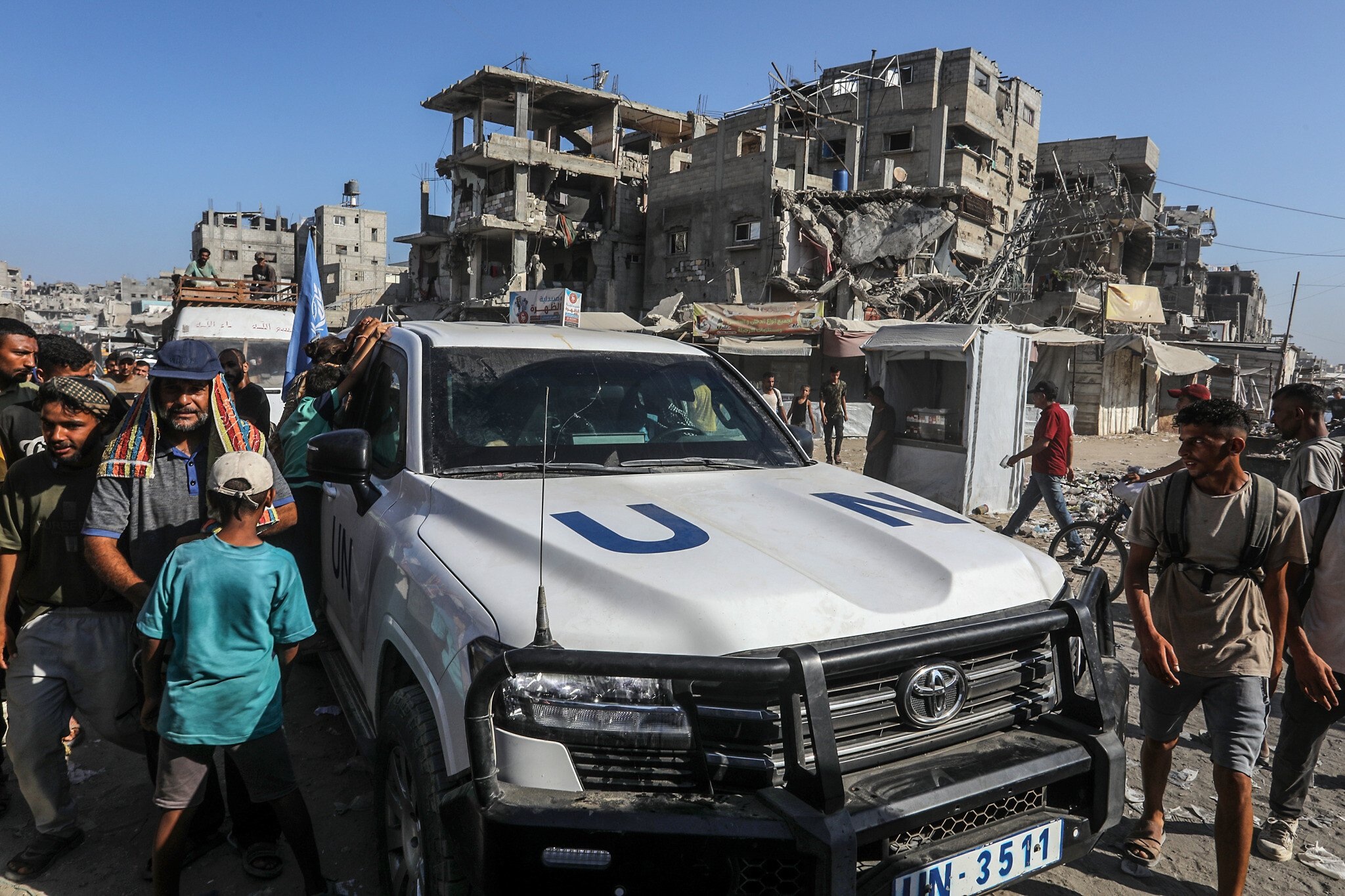Israeli Prime Minister Benjamin Netanyahu’s decision on Thursday to recall his Gaza ceasefire and hostage release negotiation team from Doha, Qatar, signals a significant setback in the ongoing efforts to secure a truce in the protracted conflict between Israel and Hamas.
The team, which has been engaged in indirect ceasefire talks mediated by Qatar, Egypt, and the United States since early July 2025, was called back to Israel “to continue consultations,” according to an official statement from Netanyahu’s office.
This recall highlights the stagnation and difficulties faced in the negotiations.
The ceasefire talks, which began on July 6, aimed at halting the violent hostilities that have devastated Gaza and resulted in over 59,000 Palestinian deaths since March, appear to have stalled with little progress in recent weeks.
Israeli Prime Minister Netanyahu expressed appreciation for the mediators’ efforts, specifically naming Qatar, Egypt, and U.S. special envoy Steve Witkoff.
However, the timing of the recall suggests mounting frustration with the lack of breakthrough.
The impact of Netanyahu’s recall decision is multifaceted.
Politically, it reflects a hardening of Israel’s stance amid domestic pressures and strategic calculations.
Israel had previously broken a ceasefire agreement on March 18, resuming its military operations in Gaza with a stated objective of debilitating Hamas’s capabilities.
The resumption of hostilities and the failure to advance talks in Doha indicate that the Israeli government is prioritizing military objectives or political leverage over immediate diplomatic resolutions.
The recall of the negotiating team sends a clear message that Israel intends to reassess its negotiation tactics and possibly recalibrate its conditions for a ceasefire.
For the mediators, particularly Qatar and Egypt, the recall is a setback but not an end to their diplomatic engagement.
Both countries have played key roles in facilitating indirect dialogue between Israel and Hamas.
Qatar, hosting the talks in its capital Doha, has invested significant diplomatic capital in brokering a peaceful resolution.
Egypt, controlling the crucial Rafah border crossing into Gaza, has also been instrumental in humanitarian and negotiation efforts.
The withdrawal of the Israeli team from Doha for consultations in Jerusalem may slow the momentum of mediation.
However, statements from Netanyahu’s office emphasize ongoing appreciation for the mediators’ work, indicating a possible return to the negotiating table after internal deliberations.
The recall also affects humanitarian conditions in Gaza.
The fragile ceasefire is critical for allowing aid, supplies, and medical assistance into the blockaded Gaza Strip, where civilian populations continue to suffer from severe shortages and escalation of violence.
The failure to reach a truce prolongs the humanitarian crisis and escalates the risk of further casualties on both sides.
It also accentuates international concern over the war, with multiple global actors urging renewed dialogue to halt hostilities and address the plight of civilians caught in the conflict.
Domestically within Israel, the recall may reflect political dynamics in Netanyahu’s government, where factions with divergent views on how to handle the conflict coexist.
Internal debates about military escalation versus diplomacy, public fatigue, and international pressure may influence the government’s negotiation posture and timing for resuming talks.
Netanyahu’s move to recall negotiators could be intended to consolidate political consensus or recalibrate negotiation strategies before re-engaging.
In summary, Netanyahu’s recall of his Gaza ceasefire and hostage release negotiation team from Qatar illustrates the faltering progress of diplomatic efforts aimed at ending the violence in Gaza.
It demonstrates the complexities of balancing military, political, and humanitarian considerations amid a longstanding conflict.
While the mediators remain engaged, the stalled talks heighten uncertainty over the timing and terms of any future ceasefire.
The recall underscores the challenges Israel faces in negotiating with Hamas through indirect channels.
It also underscores the persistent impasse that has characterized the conflict, and the urgent need for renewed strategies to avoid further loss of life and regional destabilization.
This development serves as a crucial moment in the broader Gaza-Israel conflict of 2025.
It indicates that after weeks of negotiations, the path to peace remains blocked but not necessarily abandoned.
Future diplomatic efforts will likely depend on:
- how the consultations in Israel unfold;
- potential concessions from both parties and,
- continued international mediation to bridge longstanding divides.







